Spain enters a new political era
- Published
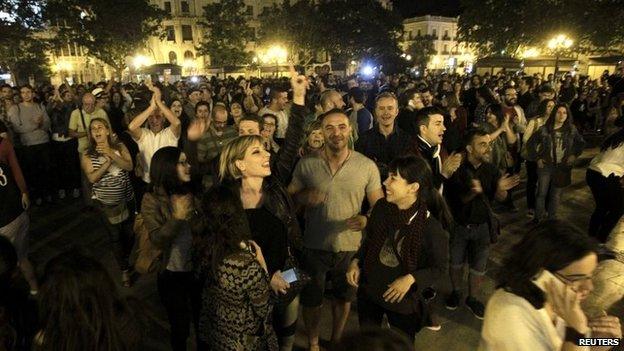
People have been celebrating the results of the vote in Valencia
As expected, in the wake of the economic crisis and high-profile corruption scandals which have tarnished the reputation of the traditional political parties in Spain, the country has now entered a new political era.
Anti-austerity parties, linked to the Podemos movement on the far left, which is barely one year old, have the prestige of holding power in Barcelona, and could form a coalition to rule in the Spanish capital.
Across the country the ruling Popular Party (PP) of Prime Minister Mariano Rajoy has been punished.
The PP will hold onto the fact that they still have the highest share of the vote of any single party.
But they have lost absolute majorities in regional parliaments across the country, including in traditional heartlands like Valencia, where the party has been badly damaged by corruption.
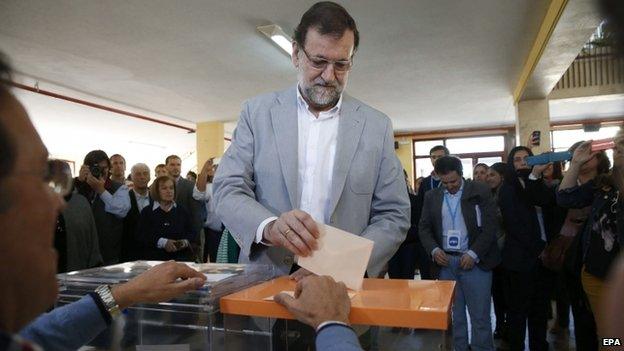
Mr Rajoy's party gained the most votes but lost absolute majorities in regional parliaments across the country
Barcelona in itself is an incredible story. The new mayor will be Ada Colau, a woman who made her name by campaigning for people who could not pay their mortgages, and who faced eviction after Spain's construction bubble burst.
What is also eye-catching is that significant support nationwide has shifted from the PP to parties on the left, even though the PP has taken Spain's economy from the height of the financial crisis in 2012 through to a period of impressive growth.
Spain's economy is expected to grow faster this year than any other economy in the eurozone.
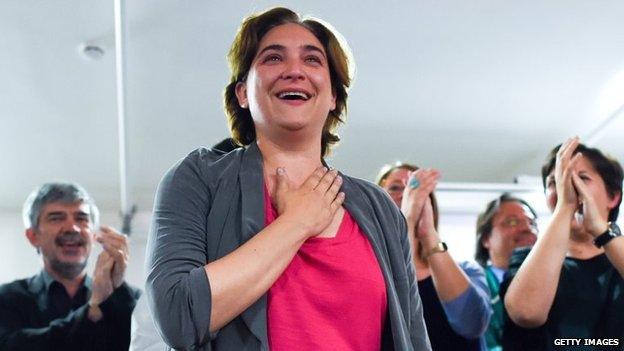
The new Mayor of Barcelona, Ada Colau, is a former activist who campaigned to stop forced evictions
That could be because the social impact of the recovery is still not being felt by enough of the people who suffered the impact of the economic crisis, and the affects of the PP's policies of austerity.
Unemployment is still a massive 24%.
But you also have to take into account the deep level of dissatisfaction in Spain across the political spectrum with the traditional parties, and in particular the PP, who many now, rightly or wrongly, associate with corruption and the political cronyism of the past.
- Published23 May 2015
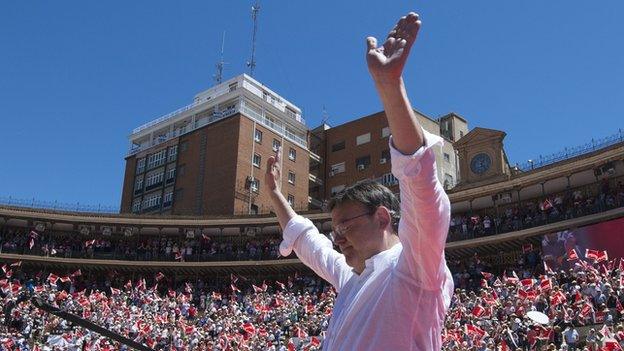
- Published23 March 2015
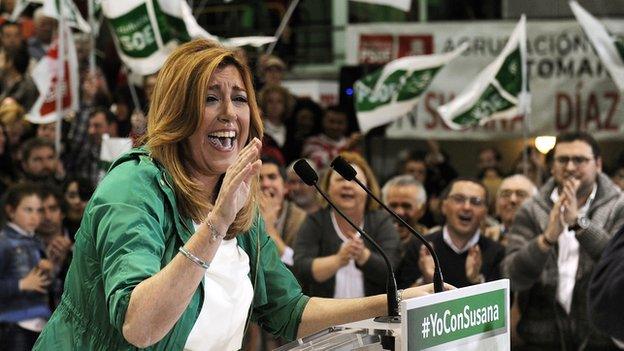
- Published14 March 2015
